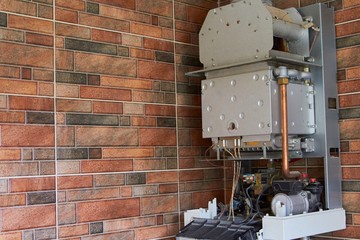Top South Florida Pool Heating
Best Method for South Florida Pool Heating – Your Options

Even in South Florida, where we swim outdoors year-round, pools require to be heated during winter so you can fully enjoy the water. Night-swimming, splashing with children, entertaining guests, appealing to renters, and those sensitive to water temperature are all reasons to maintain an optimal water temperature of 84 degrees.
A pool heater will make your pool more comfortable, and you’ll want to run it approximately November through March. (We recommend connecting the pool heater to mobile devices so you can regulate the temperature quickly.)
So, what is the best way to heat your South Florida pool? There are gas and electric heaters that do the job, and each has its advantages. Let’s talk more concerning what type of heater will work best for your South Florida pool heating.
Gas vs. Electric Heaters: What’s the Difference?
Gas pool heaters are powered by propane fuel from a tank situated on your property (usually buried). If you already use gas for cooking or heating your household, then no additional infrastructure is needed. Nevertheless, if your home or facility is entirely electric, you’ll require to make arrangements for a propane tank to be installed on-site.
Gas can heat pools and spas very fast. A spa usually reaches its optimum temperature in 20 to 30 minutes, and a pool merely takes one hour to heat up to an ideal temperature of 84 degrees.
As for effectiveness, a standard gas heater is 250 BTUs, and the most massive electric heat pump is 145 BTUs. At this rate, the electric heater will put out about one-third the amount of heat power, so it takes a lot of time to heat your pool or spa with an electric pool heater. However, electrical heaters such as the AquaCal, SuperQuiet, and HeatWave SuperQuiet (also an AqualCal product), we recommend maintaining a steady water temperature by using less power.
An electric heat pump doesn’t have to work as hard as a gas pool heater to maintain the temperature once the pool is warmed up. On average, you will lose 1 degree of heat per hour with a gas heater, and 1 degree of heat every three hours with electric heaters. So fundamentally, an electric heater is three times as efficient.
Note: Some customers select a gas heater for their spa and electric heater for their pool. This works with two different bodies of water and allows for heating both at the same time.
Cost of Gas Vs. Electric Pool Heater in Florida
Gas pool heaters cost less at first—they are generally priced 30% lower than brand-new electric heaters. Some electric heaters can cost twice as much as gas heaters. But the ultimate financial consideration is how much you’ll spend to run the heater every month, year after year.
Figuring a propane price of $4 per gallon, you could spend $250 to $600 to fill a tank, based on its size. During winter, when your pool heater is in use, you might have to replace the propane tank once or twice a month. So, maintaining an 84-degree temperature with a gas heater in an average 15-by-30-foot pool could cost $500 or more per month, depending on the pool’s size.
Electric heaters are less expensive to run, costing about $80 to $120 per month for an average 15-by-30-foot pool. While you’ll pay more at the beginning for an electric heater, you’ll realize a return on investment within the first year of use since operating it costs considerably less.
Servicing Your Pool Heater

Maintenance is another crucial consideration when selecting between a gas or electric pool heater. In our experience, electric heaters tend to be more reliable as compared to gas heaters. The reason is, gas heaters contain many safety switches and circuitry required by safety code. Thus, there are extra parts inside gas heaters, and this naturally means a greater likelihood that a part (or several) could malfunction. With mechanics, simplicity usually equates to ease of maintenance. That’s where electric heaters have a benefit.
Pool heaters need to be serviced before they are turned on for seasonal use in the fall. Service is especially significant with our humid, coastal weather in South Florida, which can be tough on any mechanicals located outdoors. Preventive maintenance will surge the longevity of a gas or electric unit.
Conclusion
So, what kind of heater is best for your South Florida pool heating: gas or electric? If you’re looking for a fast-acting heat source for a smaller amount of water, such as a spa, a gas heater makes sense. But for many South Florida swimming pools, the lower operating cost, better efficiency, and better maintenance records of electric pool heaters make them a better choice.
Regardless of your choice, today’s pool heaters are becoming more efficient and much quieter than those of the past 5 years. With insulated compressors, even standing 10 feet away, you will not hear the pool heater running. This is perfect for residences where heaters may be located close to bedrooms, and on commercial sites like resorts where guest comfort is a priority.
